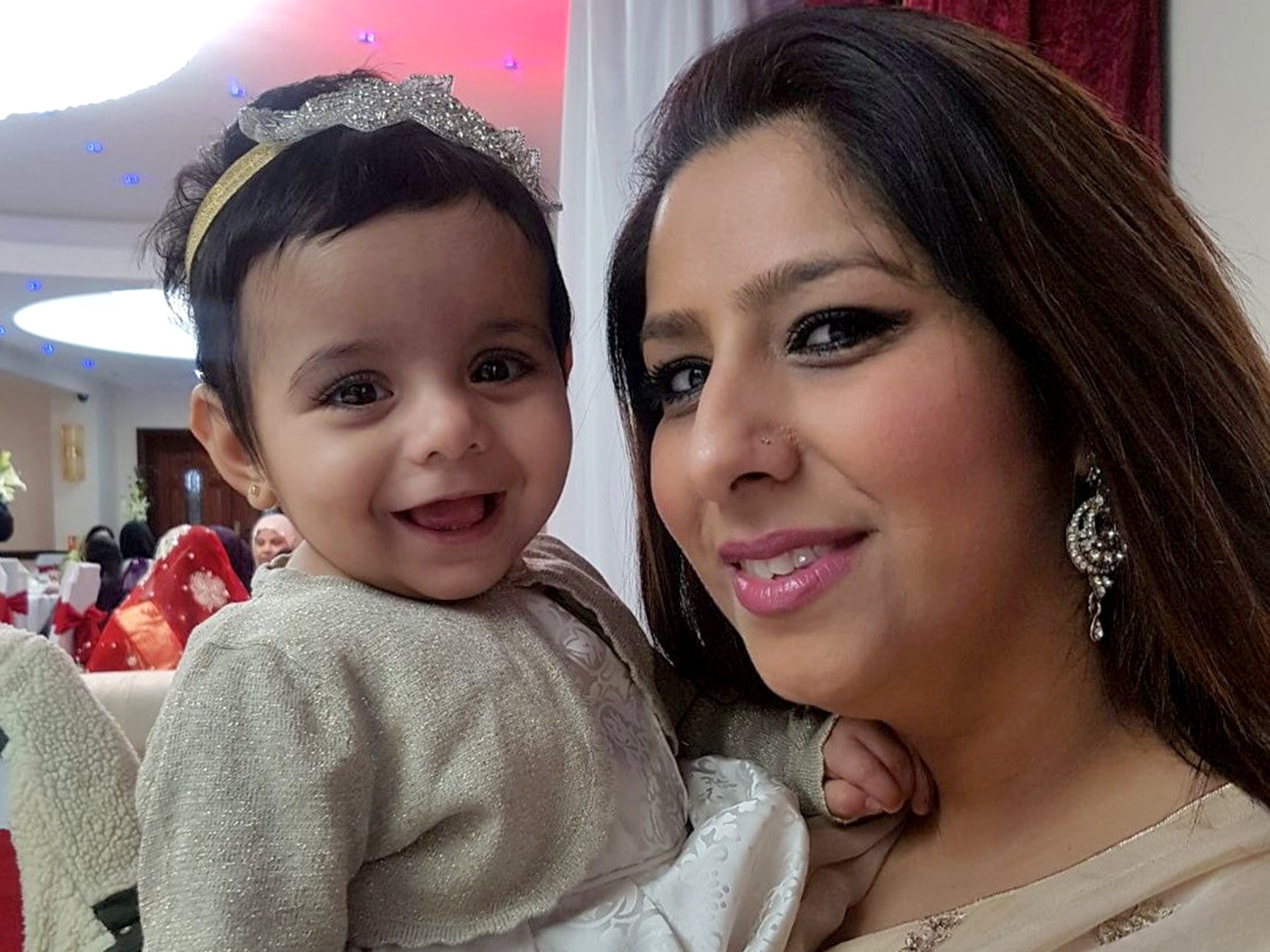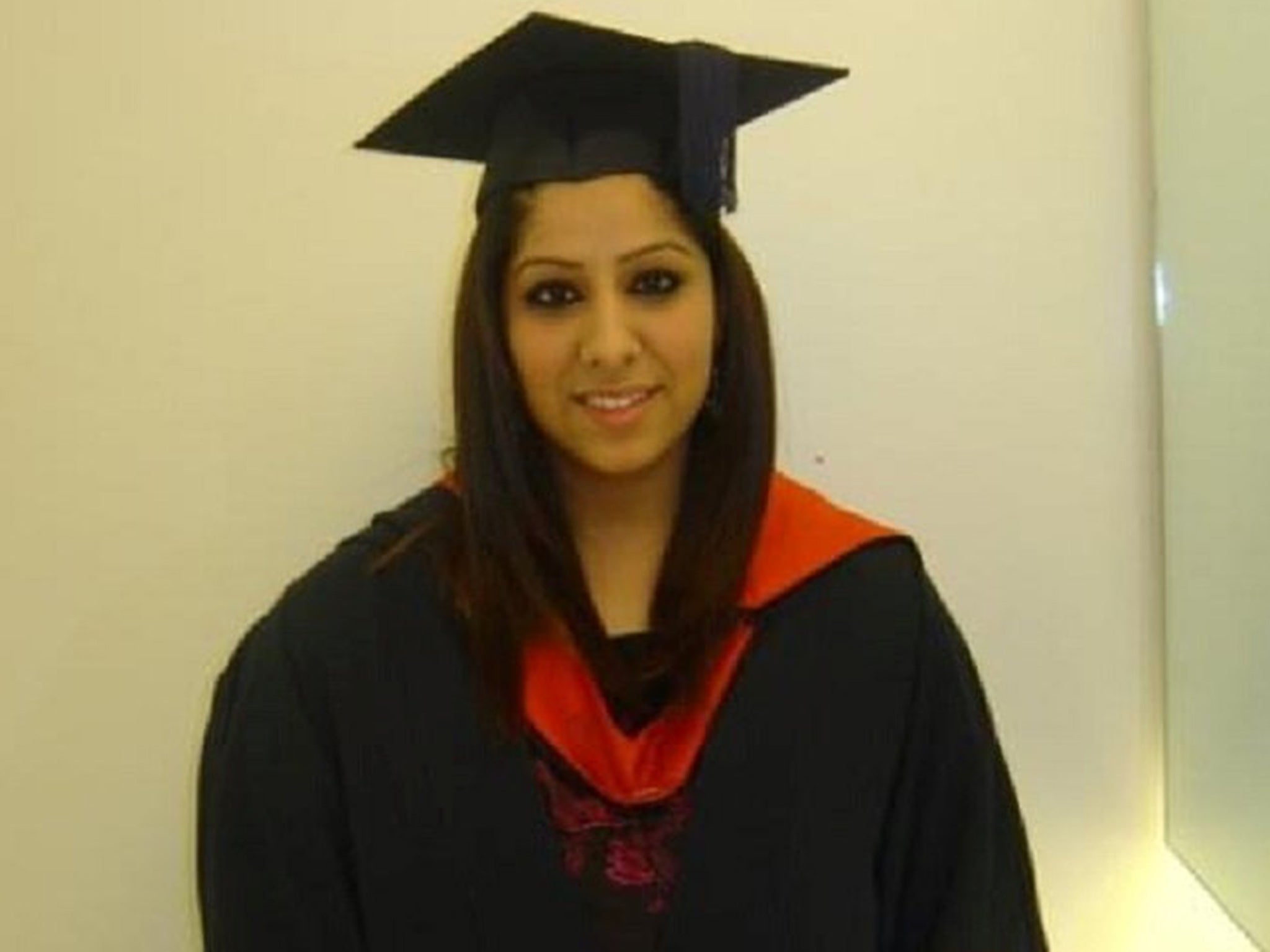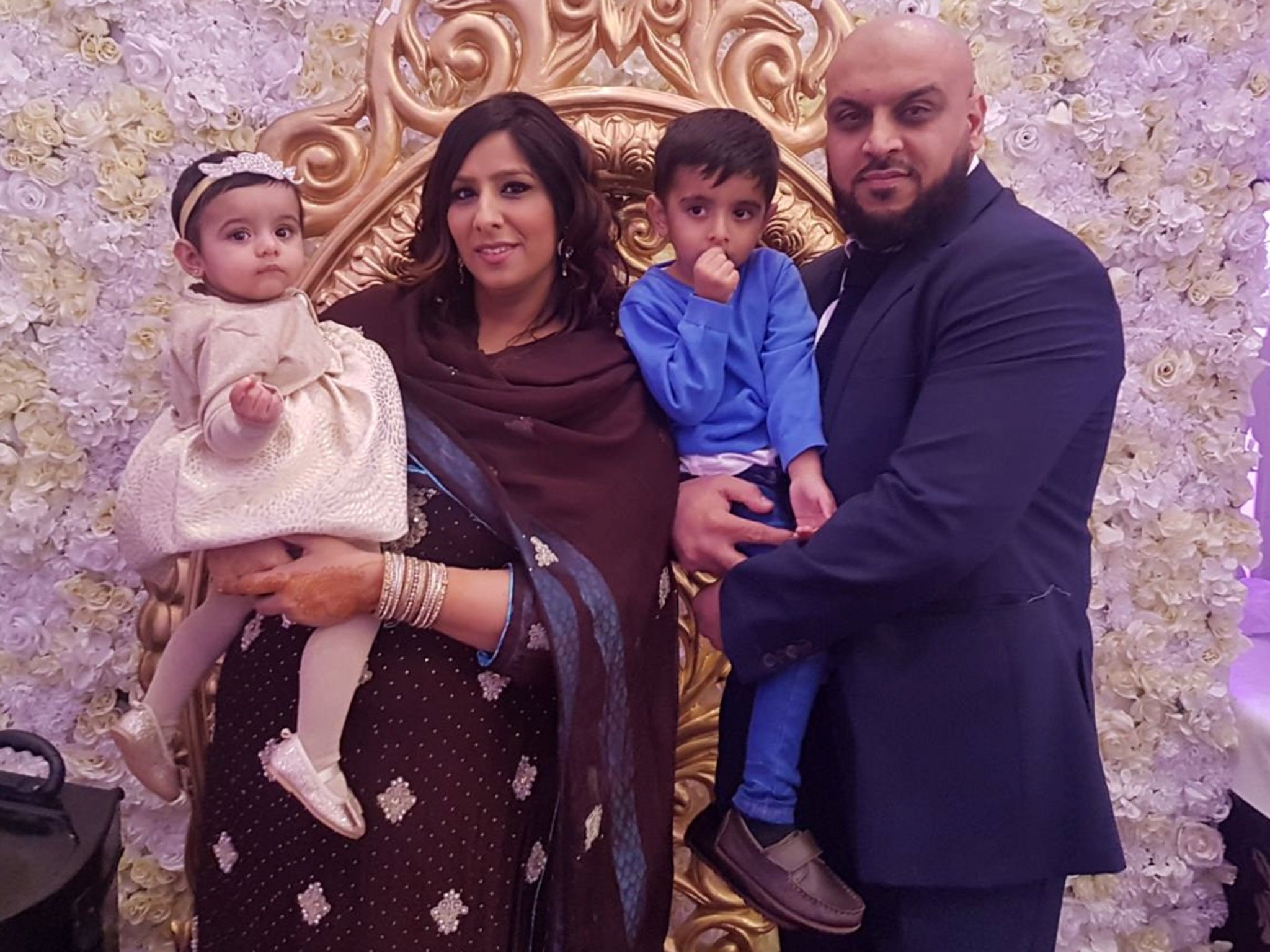Pregnant mother and baby died after she was sent to ‘unsuitable ward’
Sumera Haq’s husband inhabits ‘a living nightmare impossible to describe’, following her substandard treatment
Your support helps us to tell the story
From reproductive rights to climate change to Big Tech, The Independent is on the ground when the story is developing. Whether it's investigating the financials of Elon Musk's pro-Trump PAC or producing our latest documentary, 'The A Word', which shines a light on the American women fighting for reproductive rights, we know how important it is to parse out the facts from the messaging.
At such a critical moment in US history, we need reporters on the ground. Your donation allows us to keep sending journalists to speak to both sides of the story.
The Independent is trusted by Americans across the entire political spectrum. And unlike many other quality news outlets, we choose not to lock Americans out of our reporting and analysis with paywalls. We believe quality journalism should be available to everyone, paid for by those who can afford it.
Your support makes all the difference.A pregnant woman and her baby died two days apart after she caught Covid and was transferred to an unsuitable ward to treat her illness, an inquest heard.
Sumera Haq, 37, was eight months pregnant with her third child when she contracted coronavirus and started suffering severe stomach pain and worsening shortness of breath.
She was rushed to Whipps Cross Hospital in Leytonstone, east London, and initially treated on a labour ward.
Two days later, on 9 August last year, the primary school teacher was transferred to a medical ward after her respiratory function worsened, but her condition deteriorated and she suffered a cardiac arrest three days later.
Her daughter Ayra Butt, was delivered by caesarean section, but she had no signs of life and despite medics trying to resuscitate her, the baby was pronounced dead just 15 minutes after being born.
Ms Haq was given emergency treatment, but her condition, caused by Covid pneumonitis, continued to deteriorate and she died on 14 August.
An inquest at East London Coroner’s Court found Ms Haq was inappropriately transferred to a medical ward and died following a lack of clinical leadership.
There was also a lack of “multi-disciplinary planning” and a lack of close monitoring as well as a lack of “appropriate escalation” due to her deterioration before she suffered the cardiac arrest, the hearing heard.
Kasim Butt, her husband, described the last year as “a living nightmare” after suffering the double heartbreak of losing his wife and daughter.

He said: “It’s almost impossible to find the words to describe the hurt and pain our family feels.
“The last year has been a living nightmare which I wouldn’t wish on anyone.
“Sumera was a wonderful wife and the best mum any child could ever want. She went out of her way to help others and her death at an age when she had her best years ahead of her has been particularly difficult to come to terms with.
“Those few days and trying to come to terms with the death of Ayra, while Sumera was also slipping away from us is something I’m not sure I’ll ever get over.
“When I saw Ayra she was beautiful. I just held her and cried my eyes out. I’ll cherish what little but precious time I had with her.”
Ms Haq, who tested positive for Covid-19 in late July was admitted to Whipps Cross by ambulance on 7 August after complaining of severe abdominal pain and increasing shortness of breath.
She had sought medical advice in the previous days because of her symptoms.
Medical observations showed Ms Haq was suffering an acute kidney injury and on 11 August her level of haemoglobin – the protein that carries oxygen around the body – was considered to be concerningly low, the inquest was told.

In the early hours of the following morning, her condition deteriorated, the hearing was told.
At 7am she was administered blood thinners and not long after, the emergency buzzer was pressed and she needed help from healthcare staff.
Her observations were monitored and she continued to deteriorate. Shortly after 9am Ms Haq suffered a cardiac arrest.
A decision was made to deliver Ayra by caesarean section at 9.30am, but Ayra was born with no signs of life and CPR was started.
Resuscitation attempts were unsuccessful and the decision to stop the resuscitation was made at 15 minutes of age.
Ms Haq was rushed to emergency surgery where doctors found a haematoma – a collection of clotted blood – in her abdomen, but could not find the source of the bleeding, the inquest heard.
Surgeons carried out a hysterectomy and Ms Haq was transferred to intensive care and put on a ventilator, but her condition continued to get worse and she died.
The inquest found she died from multiple organ failure, abdominal bleeding, Covid-19 infection and pneumonia.
Coroner Nadia Persaud recorded a narrative conclusion and found the medical ward Ms Haq was transferred to “was not an appropriate clinical setting for her”.
She should not have been given blood thinners and no “adequate emergency action” was taken before she suffered a cardiac arrest, the coroner ruled.
The coroner also said there was no overall named consultant in charge of her care and there was no full multi-disciplinary meeting in planning her treatment.
“Insufficient regard” was taken of her acute kidney injury and no action was taken in response to Ms Haq’s concerningly low haemoglobin and persistent abdominal pain, the coroner added.

Mr Butt said: “Being at Sumera’s bedside and holding her hand as her body shut down in front of my eyes, and knowing there wasn’t anything I could do to help or save her, was heartbreaking.
“I couldn’t stop thinking about our other children and how I was going to tell them their mummy wasn’t coming home.
“For nearly a year we’ve had so many questions about what happened. While the inquest and listening to the evidence has been incredibly traumatic it was something I needed to do to honour Sumera’s memory.
“I know nothing can bring Sumera back, or fill the void in our lives, but our family takes some comfort in at least now having some answers to our questions. I just hope nobody else has to go through the pain we have.”
Mr Butt hired medical negligence lawyers to help get answers and support his family – including the couple’s other children aged eight and five – through an inquest into his wife’s death.
Taylor Hackett, the expert medical negligence lawyer at Irwin Mitchell representing Mr Butt, said: “This is a truly tragic case in which Kasim and the rest of Sumera’s family remain traumatised by their loss.
“Understandably, Kasim has had a number of concerns and questions about the events that unfolded in the lead-up to his wife’s death.
“While nothing can make up for what’s happened we’re pleased to have at least been able to support the family in their search for some answers.
“It’s now vital that lessons are learned following the several concerns that the inquest has identified in Sumera’s care.
“In the meantime, we’ll continue to support the family to help them try and come to terms with their loss the best they can at this distressing time.”
Barts Health NHS Trust, which runs Whipps Cross Hospital, said the standard of care Ms Haq received was not good enough but improvements had since been made.
A spokesperson added: “We offer our sincere condolences to the family of Sumera Haq. The standard of care she should have received was not met on this occasion.”




Join our commenting forum
Join thought-provoking conversations, follow other Independent readers and see their replies
Comments